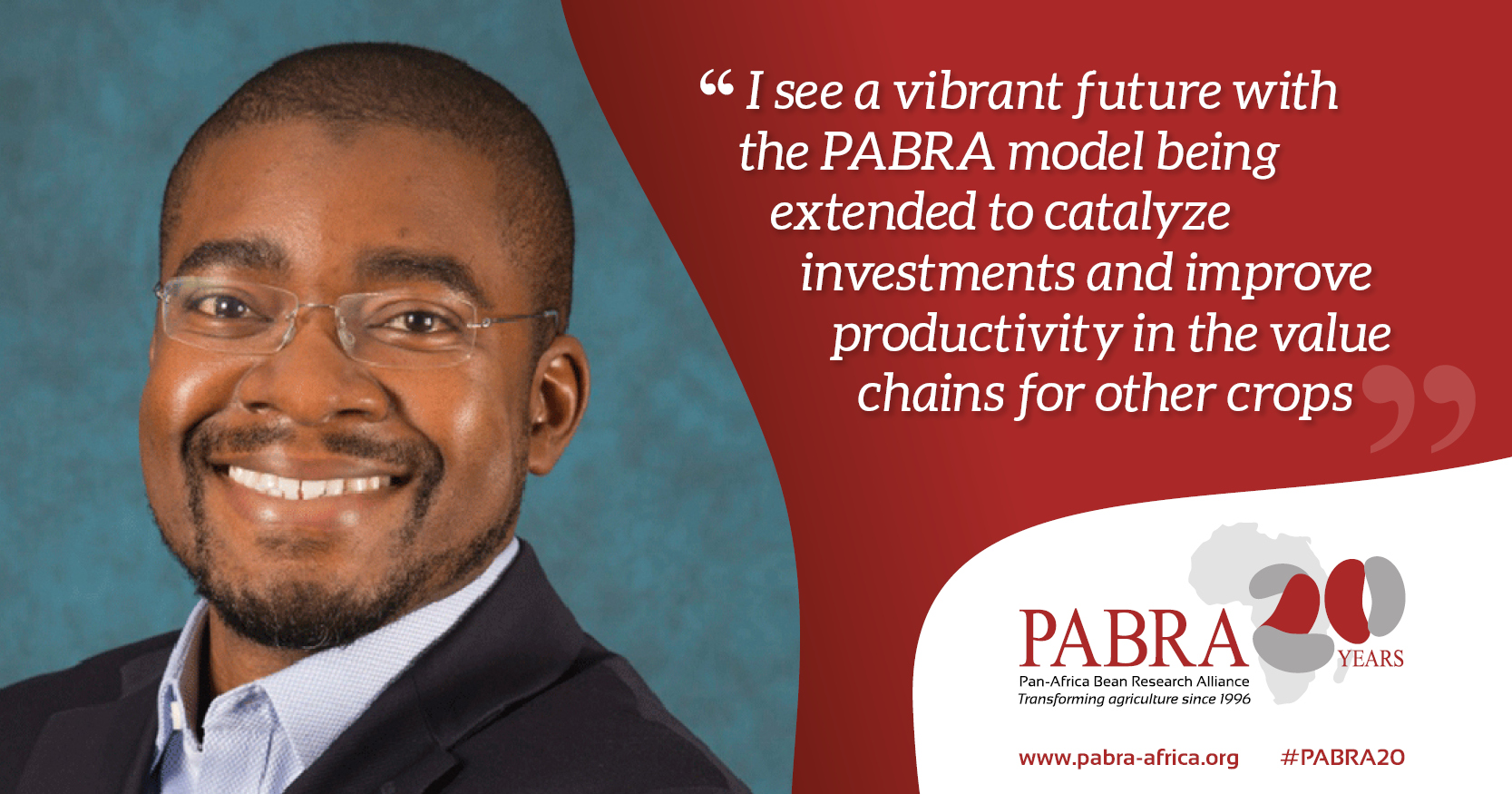By Debisi Araba, Regional Director for Africa, CIAT
There’s an Ethiopian proverb: “When spiders unite, they can tie up a lion.” I’ve always been fascinated with the potential of sustained thinking and collaborative effort.
PABRA is a great example of both. That’s because while Africa is such a diverse continent, with so many tongues and tribes, we are united in the pursuit of prosperity and economic opportunity.
Our approach to improving prosperity in African agriculture must consider the myriad of complexities which make blanket interventions inadequate. We need a more robust, networked, united approach to spreading innovation and know-how, like improved crop varieties, while paying attention to the nuances of local contexts.
African agriculture needs more site-specific solutions. Spanning 31 countries – with over 570 partners and counting – for the last two decades, PABRA has taught us lessons we can’t afford to miss: by building deep and wide networks with local partners, paying attention to local similarities and differences, we can boost yields, double – even triple – incomes, improve nutrition and transform the livelihoods of entire communities.
It is a shining example of sustained thinking, backed by a unique collaboration among academic, public and private institutions.
Over the last 20 years, the work of PABRA has ensured that farmers in Africa can be more responsive to challenges like climate change, market price volatilities, pests and diseases. They are more informed of new technologies, new practices and emerging market opportunities. That will not only improve productivity and boost yields, it will enable farmers to grow and feed their own families more nutritious food.
The time is ripe for us to apply these insights to other crops, as we work to transform the agriculture sector across the continent.
The PABRA model presents a pathway for innovative engagements between the CGIAR and all external partners, particularly the private sector agribusinesses – at both small and large scales. I see a vibrant future with the PABRA model being extended to catalyze investments and improve productivity in the value chains for other crops.
The road ahead may well present new challenges, but we are undaunted, because, as Voltaire said: “No problem can withstand the power of sustained thinking.” We, along with our partners within PABRA are stronger and more resilient to face any future challenges. Together, we will tie up more ‘lions’.

